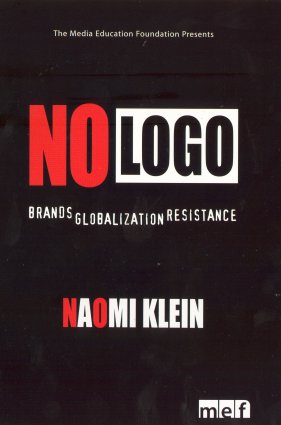Increase dependence?
Promote “affuluenza?”
I didn’t say that of course. When we have a short discussion in class on the difficulty of applying the ethics of a family to the typical (extended) market order, we end up discussing the social responsibility of business. When the question of whether it is “OK” for businesses (publicly traded ones) to be charitable with the funds/money that they are supposed to have fiduciary responsibility for, our conversation typically gets stale or perhaps worse.
Now, consider that when I say charity, I have in mind “real altruistic charity” – the kind of situation where a business takes, say, 1% of its profits, and delivers them anonymously to people it deems worthy, and without even telling anyone about it. When folks think of social responsibility of business I do not imagine then that they mean real “altruistic’ charity, but rather something more visible – such as providing free health clinics to members of the community, building public parks, and the like. I don’t need to get into this sort of a thing today. For today I want to consider the most typical “defense” of the social responsibility of business that I get from folks.
What is that defense?
That social responsibility is, itself, good for business.
Well, of course it can be. But this leads only to questions.
- If social responsibility is good for business, is there some massive market failure that prevents firms (greedy, evil firms who care only about money) from capitalizing on this already?
- Why does the voice of coercion appear so often in these discussions? If we want to talk about “responsibility” then it must be freely chosen. A business who is coerced into putting charity in the community is not so much as responsible as infantile – nothing more than a Pavlovian dog.
The most common application of the meme that social responsibility is good for business is the encouragement that all of this social responsibility is just a form of advertising. So when a firm says it grows all of its food organic, and takes measures to “protect small farmers” all it is really doing is buying a 30 second TV commercial that is no different than if it were advertising how awesome its product otherwise was.
Sure, I accept that. But therein lies the problem. Or two. I think the small economic problem with using social responsibility as advertising is that it actually dilutes whatever (limited) informational value actual advertising has – since there can now be less of it. And if folks are worried about free markets because of the tendency for information constraints to cripple them, it would seem to me that supporting the “social responsibility of business” is a bit like arguing for, “I want markets to unravel, just like we see in insurance! Yay.” I don’t think they have this in mind when they make this defense, but it sure does lead to this result.
Second, and the real reason for the post, is that I tend to get the advertising defense from the folks that think reading this book in a High School Economics class actually means it has solid economic content in it:
Or better yet, if we were to take this conversation back a few decades, the argument that was typically made against markets and corporations was put forth by John Kenneth Galbraith’s 1950s bonanza, The Affluent Society. In that book one of the major themes was most of the major needs of Americans have been met already, and that advertising by firms creates a “dependence effect” by creating a:
… craving for more elegant automobiles, more exotic food, more erotic clothing, more elaborate entertainment—indeed for the entire modern range of sensuous, edifying and lethal desires.”
And don’t forget the famous criticism of “bigger and better tailfins” in a precursor to modern arms-racy arguments made by folks like Professor Frank from Cornell.
If production creates the wants it seeks to satisfy, or if the wants emerge pari passu with the production, then the urgency of the wants can no longer be used to defend the urgency of the production. Production only fills a void that it has itself created…
Well, as you know by now what I am about to say, you can’t have it both ways. Imposing some social responsibility on business is a good thing because it is just a form of advertising which redounds to the benefit of the firms anyway. But, advertising by firms is pernicious, evil and doesn’t really produce any value for society. It only fills a void that it, itself, created.
A curious defense, don’t you think?

As a reader of thousands of annual reports, proxy statements, etc., I have often been repulsed by what the managerial class does with other people’s money. This includes not only living like the King in the G-5 but also bestowing indulgences on the king’s subjects and his courtier’s favorite charities. Think John Bryant, former chairman of Sara Lee, talking about the Stakeholders, who happened to live in a 100-mile radius of Des Plaines, IL. He and the rest of the Board owned less than 2% of the common stock, some on the board owning 500 shares, which once added up to a $10,000 interest, about equal to one of your Aunt Nellies CD’s in the Building and Loan.
Did this answer your question, WC?